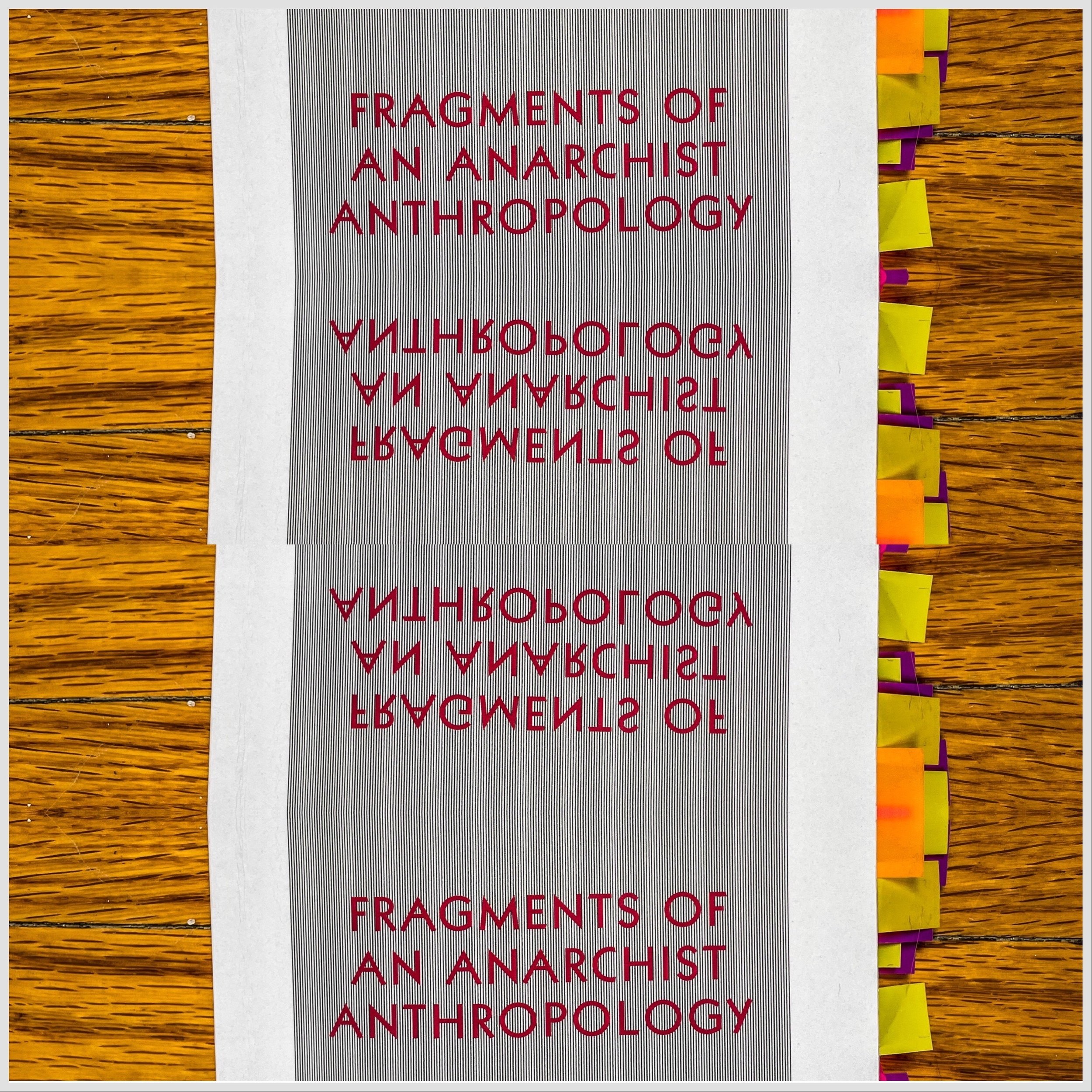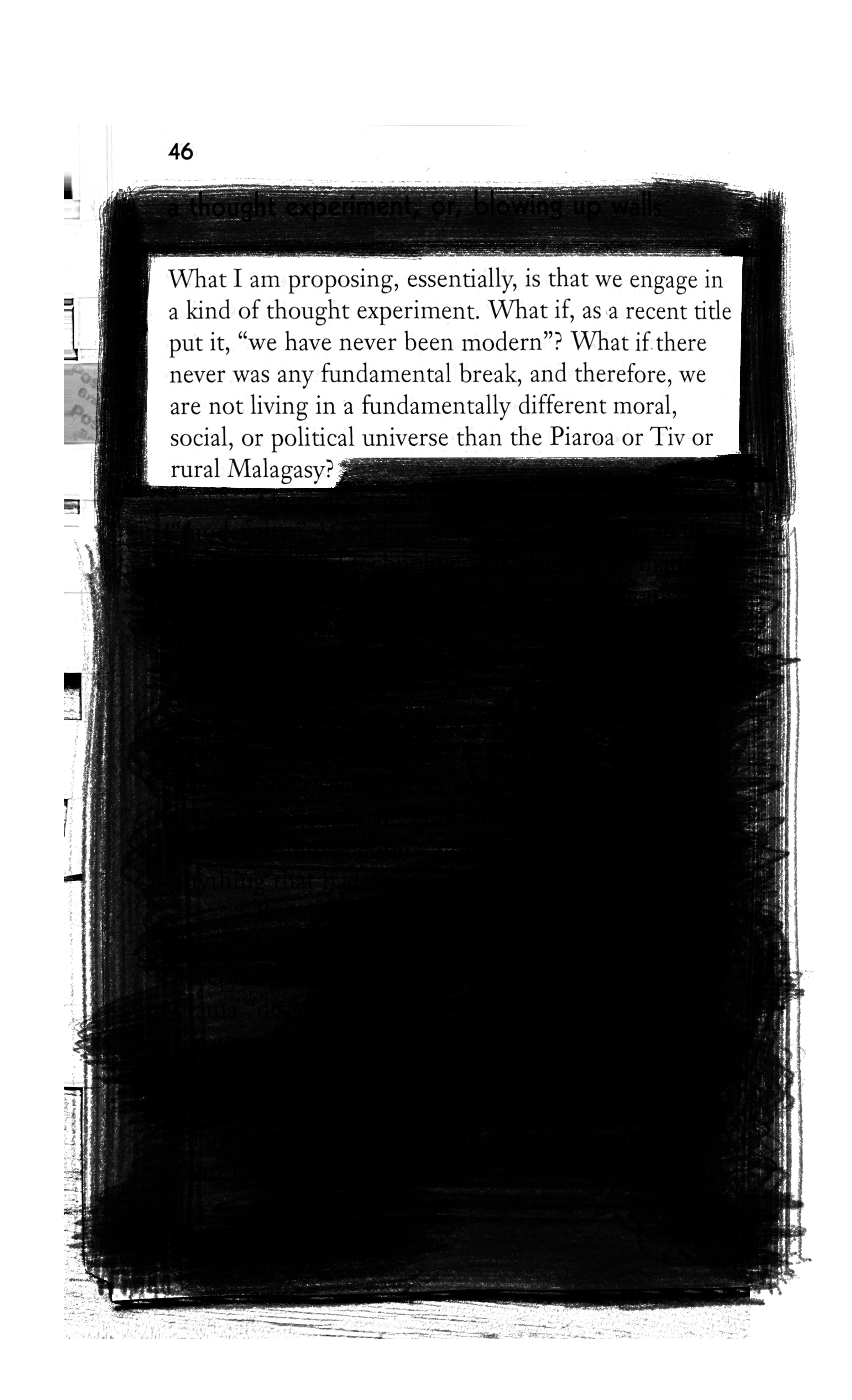NEVER MODERN
One's immediate reaction to such a claim might serve as a litmus test for political and cultural dispositions: If one accepts the claim all too readily, then one might be inclined to the romanticism often attributed to Rousseau à la the "noble savage," and therefore find themselves eager to "blow up walls," tear down institutions, and usher in the revolution. If one rejects the claim with a vehemence symmetrical to his ideological opponent's acceptance, then perhaps one might ascribe to a classical view of cultural evolution and therefore cherish the tradition and trajectory of "The West". Such an individual might even claim the mantle of Dr. King when he claimed that "The arc of the moral universe is long, but bends toward justice." Graeber has a bone to pick with both of kinds reaction: those who dream of revolutions as "rupture," and those who tacitly dismiss indigenous forms of knowledge and political organization as outmoded. The former, while perhaps more ideologically inclined to Graeber's overall project, will find disquieting his critique of the misapplication of a Kuhnian paradigm shift as a" basic intellectual mistake developmental psychologists say we're supposed to get over in early childhood, but it seems few of us really do." (43) The latter will have to contend with Graeber's apt castigation of the murderous inclinations of European colonizers– the custodians, Graeber might claim, of their traditions– and, in turn, reflect on a cultural framework that, as Allan Bloom puts it, reacts with “scepticism about the truth of all ‘world views," except for that one of which it is itself a product." It is Graeber's equal-opportunity assault on cultural and political assumptions that this reader finds most compelling.
BORDERS
If Graeber's depiction of the anarchist position on globalization is to be taken seriously, then this reader cannot take the anarchists themselves very seriously, at least as visionaries of achievable future civilizations. Utopian visions are best left to the academics and cartoonists, cloistered in their Ivory Towers and lost in the Elysian Fields of their imaginations, respectively. Most disquieting, is the is the absolutist claim that "anything less is a sham." How delightful to dream of a borderless future in which the free association of individuals continues uninterrupted by concerns of those "schmucks" Jonathan Feldman refers to in Graeber's introduction who descend to that basest level of concern: resource allocation in a large society, and the long history of violence between groups. We ignore at our peril the dreadful and murderous history of utopians who deigned to bring their visions to fruition on the large scale. Graeber's earlier attempts to distance the utopian "imagination" of Stalinist from the horrors they perpetrated (10-11) constitute the kind of basic logical error that one might expect in a sloppier thinker: Utopians committed atrocities, but so did others, therefore utopianism cannot be the cause of such atrocities. A corollary might be: Smokers often get cancer, but so do non-smokers. Therefore, smoking does not cause cancer.
Much more compelling is Graeber's more localized form of anarchy, a kind of 'quiet quitting.' "[R]evolutionary action is any collective action which rejects, and therefore confronts, some form of power or domination and in doing so, reconstitutes social relations–even within the collectivity– in that light. Revolutionary action does not necessarily have to aim to topple governments." (45). Now we're talking. Back away slowly from the devouring Statist machine, and go do your own thing. As Thoreau said, "I came into this world, not chiefly to make this a good place to live in, but to live in it, be it good or bad. A man has not everything to do, but something; and because he cannot do everything, it is not necessary that he should do something wrong. . . ." Henry David Thoreau, “Resistance to Civil Government.” 1849.






